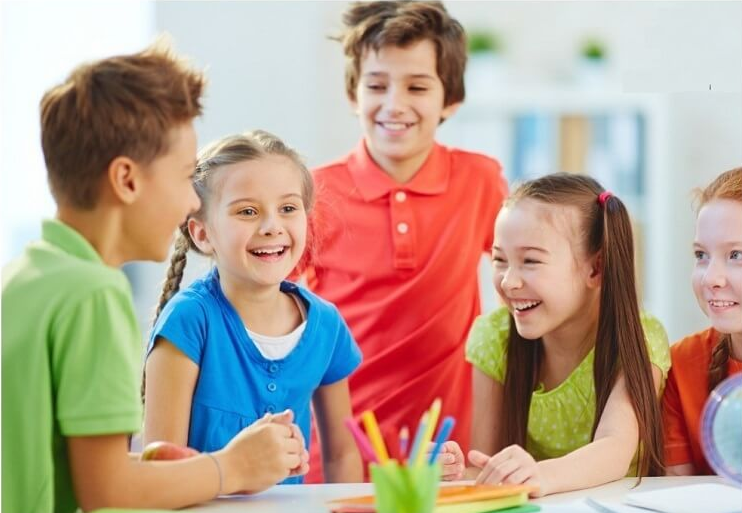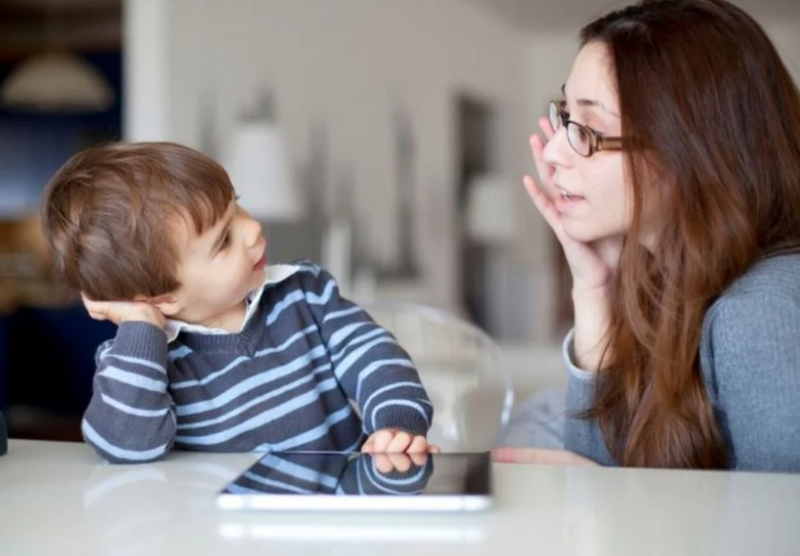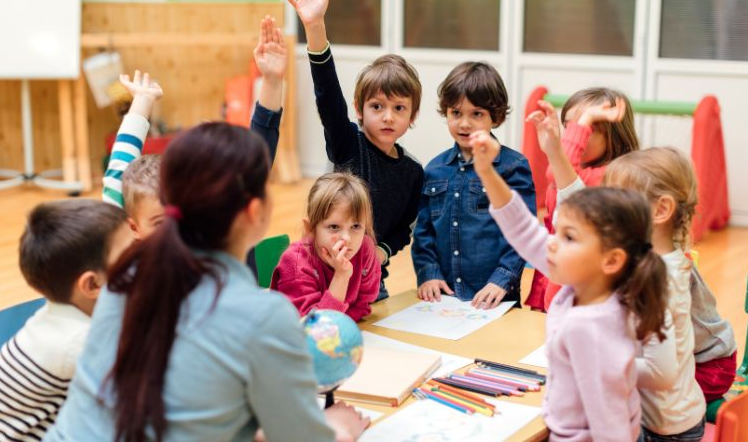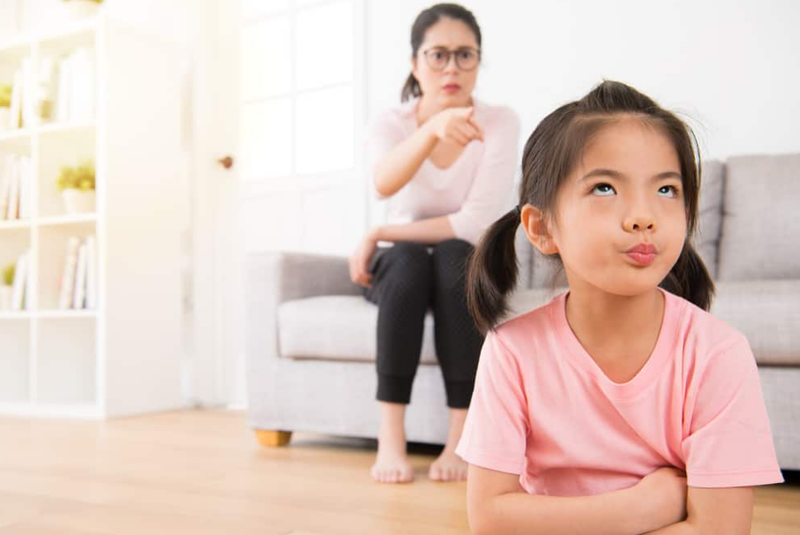To help primary school students be proactive, confident, and creative in solving problems in life, parents should teach life skills to their children from an early age. Practice necessary skills for primary school students through educational methods appropriate to their age and abilities.
Appropriate life skills for primary school students are positive actions and behaviors that help children adapt to many different environments such as communication skills, expression skills, organizational skills, self-care and protection, etc. Please refer to the following article to learn about necessary skills for primary school students.
Why do primary school students need to practice life skills?
Primary school children need to practice life skills for the following benefits:
Help children develop thinking
Practicing life skills helps children stimulate creativity, develop creative thinking ability, and have a spirit of learning. Children with good thinking will have many advantages in studying and working later.
Help children be confident
Life skills help children adapt easily in many situations and can promote their own strengths. In addition, life skills also help children practice self-confidence and independence.
Help children connect well with people
Primary school children can integrate and connect well with people if they are trained in life skills. Thanks to these skills, children are confident in communicating, conveying emotions, expressing themselves, thereby being able to build many positive relationships.

Primary school children can integrate and connect well with people if they are trained in life skills.
Creating life values
In addition to knowledge, life skills are also important factors, helping children form the right life values including love, desire to learn, responsibility, understanding, empathy, sharing, etc.
Necessary skills for primary school students
The following are necessary skills for primary school students to practice:
Emotional mastery
This is the skill of identifying emotions, thereby adjusting behavior accordingly. Emotional mastery means that children have the right to express emotions such as anger or sadness, but children must know how to handle them so as not to have negative actions. For example, children get angry but must not hurt others. Parents should guide children on how to handle these angers.
Listening
When focusing on listening, children absorb lessons and learn better. In communication, good listening helps children show respect to others. At the same time, absorb new ideas.
Here’s how to train your child’s listening skills:
- If you want your child to know how to listen, you need to do it first. When talking to your child, you should pay attention, showing interaction through facial expressions and gestures. You should not impose your point of view or interrupt your child.
- You should tell stories and read books to your child regularly. When your child focuses on understanding the content of the story, he or she will listen better.

Listening is one of the essential skills for primary school students.
Getting to know and making friends
When going to school, getting to know skills helps children connect with friends and teachers without being withdrawn or self-conscious. To help children make friends easily, parents should teach their children:
- How to introduce themselves (name, age, interests).
- How to proactively greet and start a conversation.
- Be aware of helping friends.
- Know how to share.
- Do not bully friends.
- Be cheerful and open.
Protect yourself
This is one of the necessary skills for primary school students, helping children know how to identify dangers and protect themselves. Parents advise their children as follows:
- Remember information from parents or relatives such as phone numbers and home addresses in case children get lost.
- When meeting strangers, do not talk, do not listen to requests, do not follow, do not accept food or anything.
- If you realize someone is approaching with bad intentions, you need to shout loudly or quickly seek help from the police, security guard, teacher or other friends’ parents.
Concentration
The ability to concentrate helps your child learn better and work more effectively later. You need to be patient when training your child to concentrate because young children are often hyperactive and have difficulty concentrating for too long. When training your child to concentrate, you need to:
- Arrange study and rest time reasonably, avoid tiring your child.
- The study table is placed in a quiet place.
- Limit distractions for your child while studying such as TV, phone, games, etc.
- Praise your child when he or she concentrates seriously.
Critical thinking skills
Critical thinking skills are the ability of children to evaluate things and have their own perspective on them. For primary school children, critical thinking skills help children develop creativity, logical thinking, and expand their awareness. To practice critical thinking, mothers can apply the following methods:
- Ask open-ended questions to stimulate thinking, practice speaking and reasoning skills for children. For example, instead of asking “Did you have fun studying today?”, you can ask “How was your English class today?”.
- Parents should let their children decide things within their abilities, helping them to be confident and develop problem-solving skills.
- Encourage children when they have new ideas to promote their creativity.
Teamwork
Teamwork skills help children cooperate effectively with others, develop communication, understanding, organization and leadership skills.
How to practice life skills for primary school children:
- When at home, let your child participate in housework such as helping mother cook, clean the house, put away toys.
- You should also let your child participate in collective and extracurricular activities at school and in the neighborhood.

You should also let your children participate in collective and extracurricular activities at school.
Planning
If you do not arrange your study time properly, your child will easily be overloaded. With a good study plan, your child will have a reasonable amount of rest, know what time to do it, and complete it seriously.
To plan effectively, you need to note:
- Do not arrange a full schedule, which can easily put pressure on your child.
- Schedule your study according to your child’s health and needs.
- You should add exercise time between study hours.
- If you find the plan unreasonable, you should change and adjust it accordingly.
- Reward your child when he or she completes the plan.
Know how to greet, thank you, and apologize
Parents need to teach their children to greet adults politely, and know how to say thank you and apologize in each situation. This is a basic but important skill that needs to be trained in children as soon as possible.
How to teach children the skills of greeting, thank you, and apologizing as follows:
- Parents should set an example for their children to imitate.
- When your child receives something good, teach him or her about gratitude.
- When making a mistake, your child needs to be brave enough to admit and correct it, not blame others.
Notes when teaching skills to primary school children
Parents should note the following when teaching skills to primary school children:
Control criticism
Criticism from adults makes children sad and resentful, making it more difficult for them to open up to their parents. Instead of criticizing, parents should behave more gently, criticizing along with praising the good things their children have done is very effective.

Criticism from adults makes it harder for children to open up to their parents.
Don’t force children to follow rules
Adults often force children to follow rules whether they want to or not. This limits children’s creativity and imagination. Let’s work with children to come up with rules based on their needs and interests, and if there is anything wrong, parents can adjust them to suit the child.
Understand children
When children talk about their problems, parents often do not take it seriously because they think it is a child’s problem and often say things like “I told you so…”. However, this action only makes children more distant and less willing to share with their parents.
In general, teaching necessary skills to primary school students is useful for their children’s learning and for their future. Parents need to be patient and accompany their children in this important process.





